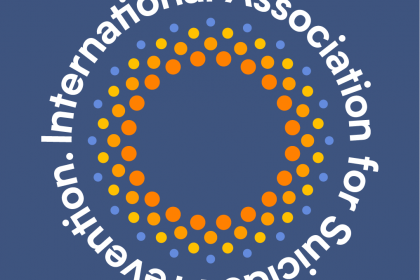On October 14th 2020, thanks to IASP, we held our informal meeting of IASP national representatives. One of the opportunities that COVID-19 allows us is to practice online gathering since we cannot have conferences to meet and chat. Representatives from around the world gathered in a Zoom room to greet one another, share experiences, and start a process of brainstorming and collaboration.
FROM THE NATIONAL REPRESENTATIVE, ISRAEL, ANAT BRUNSTEIN KLOMEK, PH.D.
In our suicide prevention world, we like to think of social connectedness as a significant protective factor. We practiced it during our call. COVID-19 is challenging in so many ways and it is now extremely important to be together as a professional community but also for us individually. It was heartwarming to hear that we are all challenged by similar issues and are united in proactively investing in the emotional aspects of the pandemic but specifically with regard to suicide prevention. Obviously, countries vary in their efforts within the prevention world and there is a lot to learn from each other’s experience.
Many countries still do not have official data on the suicide-related impact of the pandemic, but it seems that these consequences may continue to peak after the actual pandemic has ended. This possibility allows us each to think of tailored prevention plans for the time during the pandemic as well as for the “day after” the peak. Pandemic-specific suicide risk factors, as well as the prepandemic risk factors, may be where we now want to invest our time and resources. As a clinical psychologist, I personally am eager to disseminate short-term psychological interventions focused on reducing suicide risk. Just at this moment, we are at a crucial juncture in which we can make sure that evidence-based interventions are shared in real work settings and not just in academic centers and the private sector. In addition, now more than ever, we need to emphasize to the public as well as decision-makers, that mental health is connected to the physical, social, and financial burdens imposed by the pandemic.
One major positive development in these challenging times is the rapid growth of online assessment and treatment in the field of suicide prevention. In the last several years in Israel (prior to the pandemic) the use of online treatment was rarely used in the public sector and, in many cases, questioned by professionals and patients. The pandemic created a situation in which many of the barriers in the use of online interventions had to be overcome. My assumption is that some of this use will continue after the pandemic and can be used to serve people from around the country who have limited access to treatment.
During these challenging days, we should all remember the optimistic message that suicide is preventable, and our job is to prove this so we can save lives. This was just the beginning of our informal meetings and I’m looking forward to our next online get-together and to the day when we can meet in a face-to-face fireplace gathering.





